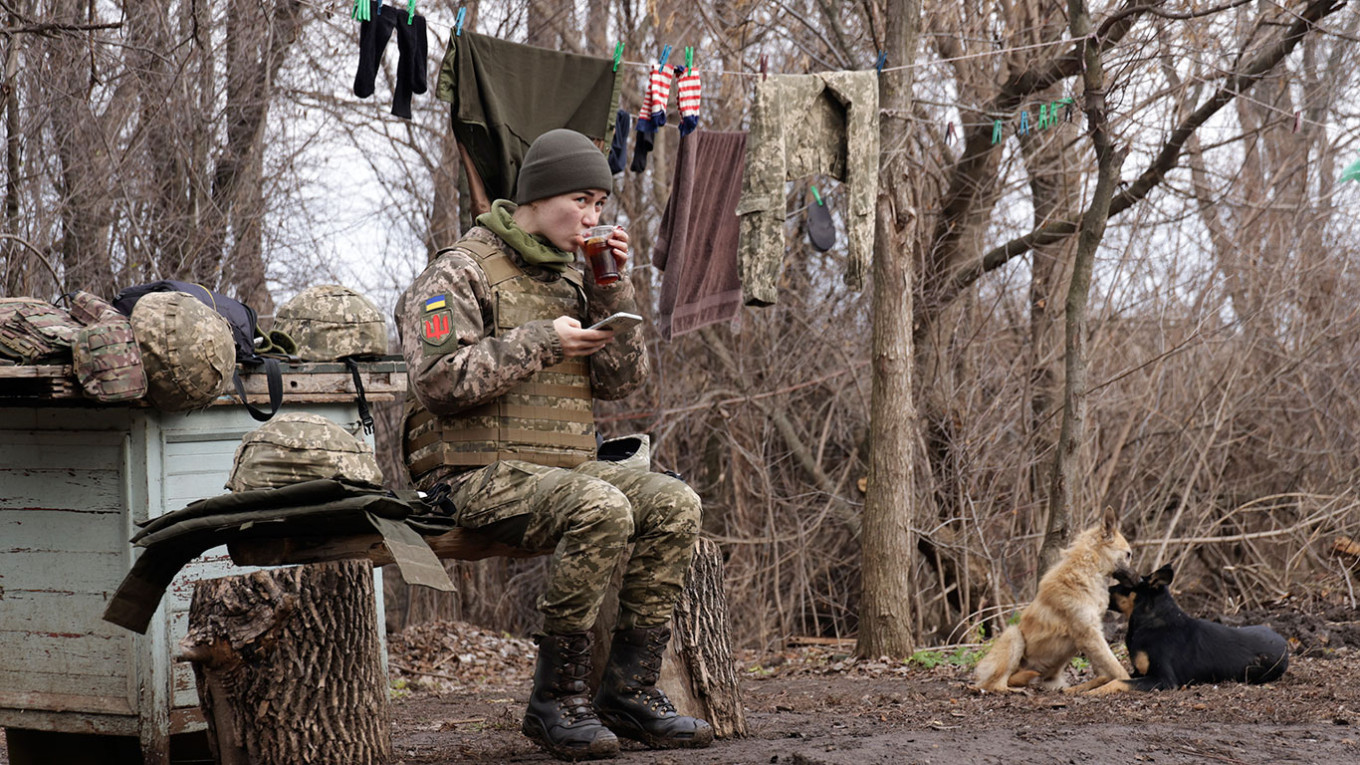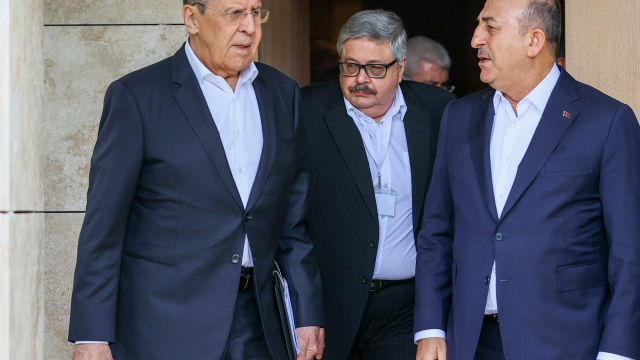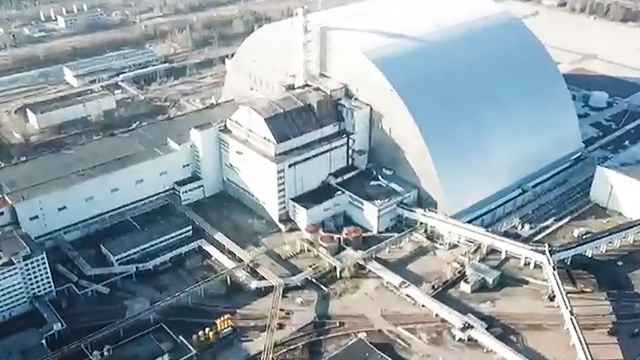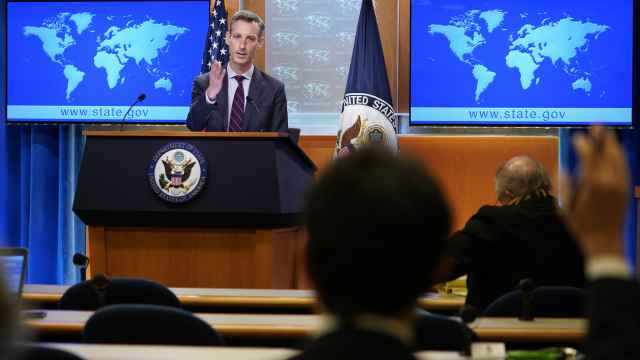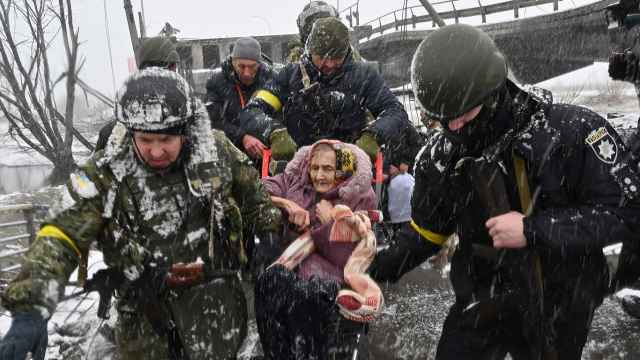Concert venues and cafés in Moscow are packed, and compliance with the COVID restrictions is lax. In Moscow, no one I know believes a war is imminent. People read and watch the news, not just the state-run outlets, yet they still don't believe it. “It’s all games,” a friend of mine tells me over coffee.
Many understand that discussions of an imminent war are mainly coming from the U.S. and British media, which they do not trust. Some believe President Putin's troop buildup near Ukraine is a negotiating tactic, similar to the earlier deployments in March and April 2021. Some people simply refuse to take it seriously. Many Russians' mental universe does not include war.
I cannot recall another instance in which popular opinion diverged so dramatically from expert opinion. Almost everyone I spoke with in the expert community considers the likelihood of conflict to be high. Today many analysts think the current deployments, as opposed to those from last spring, are a preparation for action.
“This is the most dangerous situation that we have been in since 1983,” François Heisbourg tells me over the phone. Today's events, according to Heisbourg, who is senior advisor for Europe at the International Institute for Strategic Studies (IISS), remind him of the dramatic fall of 1983, when, on September 1, a Soviet interceptor mistook a Korean Air Lines flight from New York to Seoul for an intruding U.S. spy plane and shot it down. The tragedy was caused by the KAL pilots’ navigation error and the Soviets’ low tolerance for airspace intrusions.
In November of that year, NATO held its annual exercise, code-named Able Archer 83, which simulated conflict escalation and included a simulated coordinated nuclear assault. Soviet commanders prepared the country's nuclear capabilities and placed air units on alert in East Germany and Poland. When reports on the drill were declassified in 2015, analysts and historians concluded that the fall of 1983 was one of the deadliest nuclear close calls in history.
Despite the relative transparency of the Russian preparations, a lot of things remain unknown. Operational surprises are President Putin’s specialty, so analysts are considering all possibilities, from remote air strikes to cyberattacks to a full-fledged ground invasion. Many things are possible, but it is hard to imagine that Moscow will remain inactive, analysts believe. François Heisbourg assesses the probability of an armed conflict at 50 to 70 percent.
Another indirect argument for a possible active military operation by Russia is its long-term strategy to shield the country from possible new sanctions. For years now, Russia has been increasing its foreign currency reserves and attempting to “dedollarize” its economy. Central bank reserves have risen by more than 70 percent since late 2015, topping $620 billion. Dollar reserves accounted for 16.4 percent of overall reserves last year, down from 22.2 percent in June 2020, according to figures released last week.
Russia’s government has run a conservative fiscal policy and has been able to keep its debt under 20 percent of GDP. The debt is expected to fall to 18.5 percent by the end of 2023. This compares to the United States’ government debt to GDP ratio of 133 percent, according to IMF data.
One important unknown is whether Russia’s ultimatums to the West were intended to fail. Most Western analysts believe that Moscow has extended demands that Washington and NATO officials would regard as nonstarters by design. The Russia-proposed agreement on security guarantees with NATO says, among other things, that today’s alliance member countries withdraw all NATO-deployed weaponry that was not there as of May 27, 1997, thus restoring the 1997 configuration of the Russia-NATO balance.
Hungary, Poland, and the Czech Republic joined NATO in 1999; Bulgaria, Latvia, Lithuania, Romania, Slovakia, Slovenia, and Estonia became members in 2004. Albania and Croatia joined in 2009, Montenegro in 2017, and North Macedonia in 2020. Russian proposals mean that all these countries would have to effectively renounce all military protection extended to them by the North Atlantic alliance, a highly unlikely proposition.
Western experts feel that Putin has burned his bridges by making his strong posture so public. If the troop buildup is not leveraged in some way, it will become a hollow threat, permanently damaging Putin's international and domestic credibility.
In a prevailing Western view, Moscow has more reasons to escalate than to de-escalate, but Russian diplomats insist Russia is not going to attack anyone and is waiting for a detailed written response to its two proposals.
Yesterday, John Sullivan, the U.S. ambassador to Moscow, handed Washington's response to the Russian Foreign Ministry, while NATO officials said they had delivered their response to a Russian diplomat in Brussels. Both texts, predictably, underline NATO's "core principle" of open-door membership, with each state having the right to decide for itself whether or not to join the alliance, according to a news conference. NATO secretary general Jens Stoltenberg stated that the organization “cannot and will not compromise” on its ideals for the security of its members and partners.
Russian foreign minister Sergey Lavrov told the State Duma, the Russian parliament, that Moscow would not publish a U.S. response on security guarantees, if asked, but will disclose the general meaning of the answers. He said the United States had already said that the written response should not be made public.
“If that’s how they will approach everything that’s happening, we will probably be unable to publish the U.S. document,” Lavrov said. But he promised to make the meaning of the U.S. reaction known to the Russian and international public.
Among the arguments that speak against a Russian invasion is that Moscow has demonstrated time and again that it can make military decisions and deployments at lightning speed (e.g., in Syria and Kazakhstan).
The force buildup near Ukraine has been going on in plain sight for months now. The general anticipation fostered by Moscow’s moves contradicts its secretive and agile approach to military operations.
Another point to consider is that any operation must be presented to the Russian public as a “just war” before it can commence. Russia has to suffer a blow of some kind to respond militarily.
Moscow requires a casus belli that would sound plausible for the benefit of domestic public opinion even if the Kremlin is unconcerned about any believability from a Western perspective. The problem with Russian public opinion, though, is that it is extensively influenced by state-run propaganda channels, and as a result, many people have given up trying to form a thoughtful opinion on issues that could affect us all. “It’s all games,” as that friend of mine says.
This article was first published by the Wilson Center.
A Message from The Moscow Times:
Dear readers,
We are facing unprecedented challenges. Russia's Prosecutor General's Office has designated The Moscow Times as an "undesirable" organization, criminalizing our work and putting our staff at risk of prosecution. This follows our earlier unjust labeling as a "foreign agent."
These actions are direct attempts to silence independent journalism in Russia. The authorities claim our work "discredits the decisions of the Russian leadership." We see things differently: we strive to provide accurate, unbiased reporting on Russia.
We, the journalists of The Moscow Times, refuse to be silenced. But to continue our work, we need your help.
Your support, no matter how small, makes a world of difference. If you can, please support us monthly starting from just $2. It's quick to set up, and every contribution makes a significant impact.
By supporting The Moscow Times, you're defending open, independent journalism in the face of repression. Thank you for standing with us.
Remind me later.



